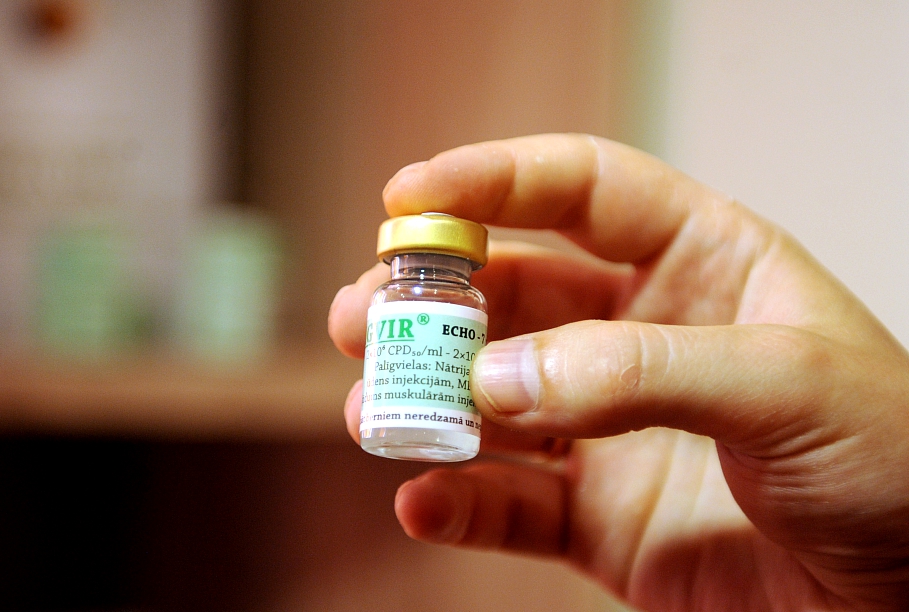The Health Inspectorate and the State Agency of Medicines (ZVA) decided last autumn to test the anti-cancer product Rigvir in the laboratory and the preliminary results have proven to be deeply concerning, reported De Facto March 24.
A sample of Rigvir was sent to an independent laboratory in the United Kingdom. It found that the amount of Rigvir ECHO-7 virus, which is supposed to fight cancer cells, is of a much smaller amount than promised by the manufacturer.
"It's like buying what you think is lemon juice, but finding that what you have is lemon-flavored water," said Guntars Kaspars, ZVA's deputy laboratory director.
Following the results of the first tests, another batch of samples has been sent for testing to the UK, with results expected soon. Meanwhile, Rigvir was removed from sale in Latvia, as recently reported by LSM, though the company said at the time that this was due to "financial reasons" and made no mention of clinical concerns.
"The public should not be worried about some sort of problem, and it does not threaten public health," said Rigvir representative Kristīne Jučkoviča, again insisting that the medication had been pulled from the market as a result of financial restructuring.
According to De Facto, if the findings of the later samples are the same as those of the first samples, the medicine will likely banned from sale in Latvia and excluded from the list of reimbursable medications.
Two years ago, doctors' medical organizations (including the Latvian Oncologists Association) asked for the product to be withdrawn from the list of reimbursable medicines and for its registration in the national medicines register to be withdrawn on the basis that the clinical data supporting its effectiveness was of poor quality and the money spent on Rigvir could more usefully be spent on other cancer treatments. Last year the state contributed around 240,000 euros towards the costs of patients undergoing treatment with Rigvir.
The request was ignored by the Health Ministry and Rigvir has liked to portray itself as a Latvian success story pioneering cancer treatment, despite its lack of necessary clinical certification for sale in the rest of the European Union or the United States.
As previously reported by LSM, Rigvir is no stranger to controversy, with questions asked repeatedly about the validity of its clinical claims, and its methods of marketing itself to cancer patients overseas via the International Virotherapy Center, which has its official address in Dubai, an office in Latvia and call centers in the UK and US.
.@veselibasinspek un @ZVALatvija pērn nolēma pārbaudīt pretvēža preparātu "Rigvir", un rezultāti par vienu no zāļu sērijām izrādījušies graujoši. "Rigvir" vīruss, kam būtu jācīnās ar vēža šūnām, šķidrumā ir daudz mazākā apjomā nekā apsolījis ražotājs. https://t.co/9B6daytYwb pic.twitter.com/ZICwrdtjEo
— De Facto (@ltvdefacto) March 25, 2019



























